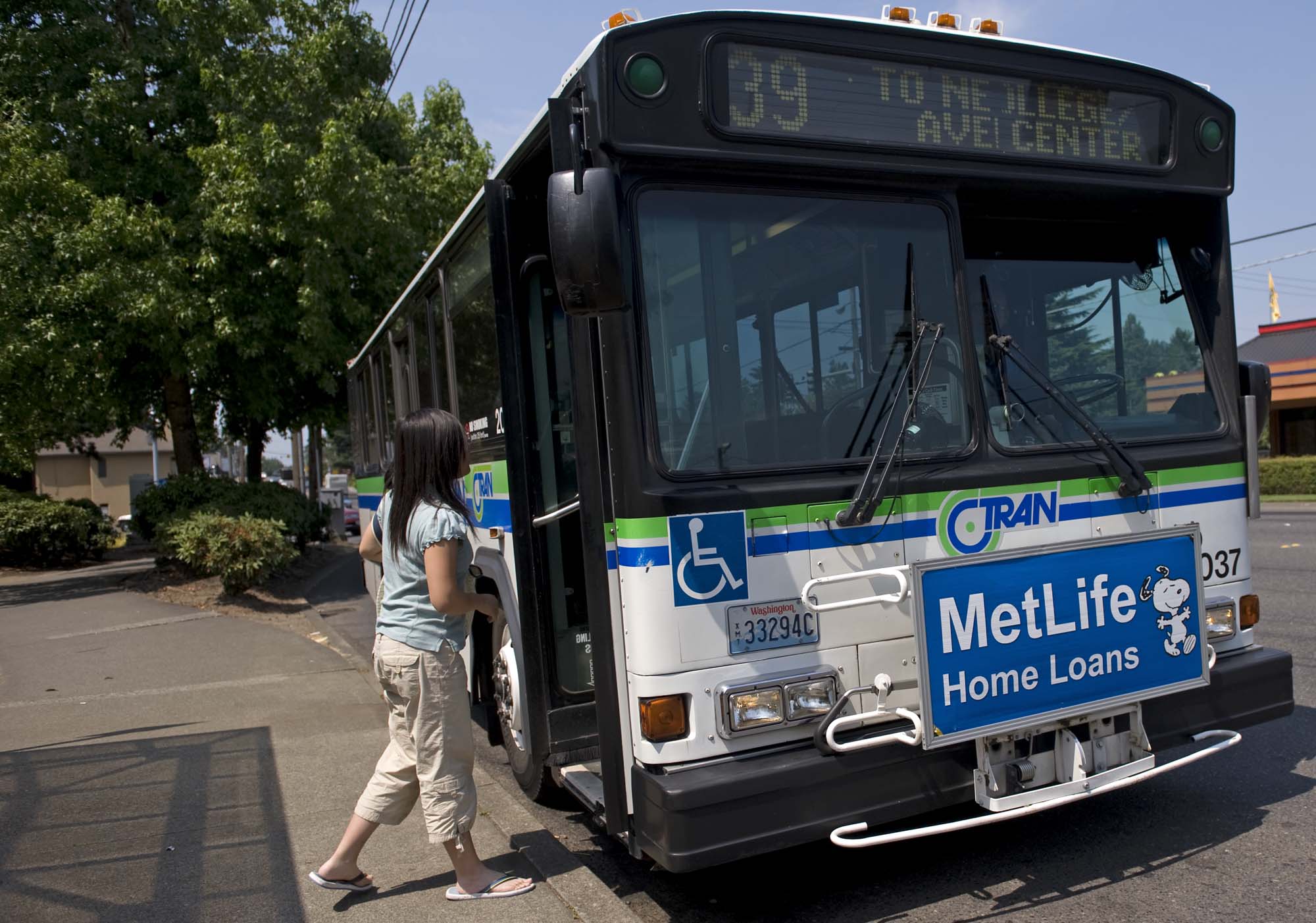Tonight: C-Tran board to consider CRC, BRT support
The C-Tran Board of Directors will tackle two of its highest-profile issues — the Columbia River Crossing and bus rapid transit — head on during its monthly meeting tonight.
Members of the Vancouver City Council reiterated Monday they strongly oppose giving up a seat on the C-Tran Board of Directors.
But that could happen under a proposal scheduled to be discussed Tuesday by C-Tran’s board composition review committee.
The city of Vancouver contributes 60 percent of C-Tran’s sales tax revenue and approximately 80 percent of its ridership.
By law, the C-Tran Board of Directors has nine voting members. Currently, the city has three seats, as does the county. The remaining three seats are shared by Camas and Washougal, Battle Ground and Yacolt, and Ridgefield and La Center.
Clark County Commissioner David Madore has proposed to assign two seats to Clark County, two to Vancouver, one each to Camas, Washougal, Battle Ground and Ridgefield, and one for La Center and Yacolt to share. Under another proposal, Vancouver would retain three seats, the county would have two seats, Camas, Washougal and Battle Ground would each get a seat and Ridgefield, La Center and Yacolt would share a seat.
The committee can also vote for the status quo.
Councilor Jack Burkman questioned why changes were even being considered. If a governing board was being started from scratch, so much weight would not be given to groups that play such a small role.
“It can’t be for good governance, or we wouldn’t be going down this road,” Burkman said.
Leavitt said the C-Tran Board of Directors had operated harmoniously until a “different influence” joined this year, a reference to Madore.
Now there’s an attempt to keep Vancouver from providing urban services such as bus rapid transit and light rail, both of which are part of C-Tran’s 20-year transit development plan, Leavitt said.
Even Councilors Jeanne Stewart and Bill Turlay, who are supported by Madore, oppose giving up a seat.
Uncertain impact
The composition review committee has three seats for the county but one seat apiece for the other jurisdictions. That means Vancouver’s vote on the committee, representing 81 percent of C-Tran riders, carries the same weight as Yacolt’s, which represents 0.1 percent of riders.
Vancouver Mayor Tim Leavitt told Councilor Bart Hansen, who serves on the composition review committee, to lobby for the status quo.
But first, Leavitt said, the composition review committee shouldn’t vote until attorneys determine whether a change in the makeup of the board would mean the death of the bloc veto power that can be wielded by either Vancouver or Clark County.
Attorneys representing C-Tran, Clark County and Vancouver all have a different interpretation of the C-Tran bylaws.
Assistant City Attorney Linda Marousek, who believes that the city and county could retain the veto power even if they give up a seat, told the councilors that C-Tran should take the advice of its attorney, Tom Wolfendale, because “he’ll have to clean up the mess,” if there’s one to clean up.
Wolfendale said Aug. 13 that changing the number of seats held by Vancouver or the county would essentially do away with the veto by default. Such a change would make the veto “unenforceable” until the new board rewrote its bylaws, he said. Wolfendale said he believes that’s true even if Vancouver kept its three seats, if the county does not.
Clark County Chief Civil Deputy Prosecutor Chris Horne said the bylaws don’t state that veto rights are lost by both parties if either the city of Vancouver or the county loses a voting position. “Nothing prevents either party from voluntarily giving up a voting position. There is also no requirement that the city abandon its veto power merely because the county gives up its veto authority. The same is true if Vancouver gives up its veto power,” Horne wrote in a Sept. 4 opinion.
Before C-Tran was formed in 1980, the city of Vancouver operated its own bus service. The city council could get out of C-Tran, Marousek said, but getting out of a public transportation authority is a long and complex process, and the city would have to find the money to operate a bus service. The city’s sales tax revenue that currently goes toward C-Tran would no longer be collected, City Manager Eric Holmes said.
Stephanie Rice: 360-735-4508 or stephanie.rice@columbian.com.



